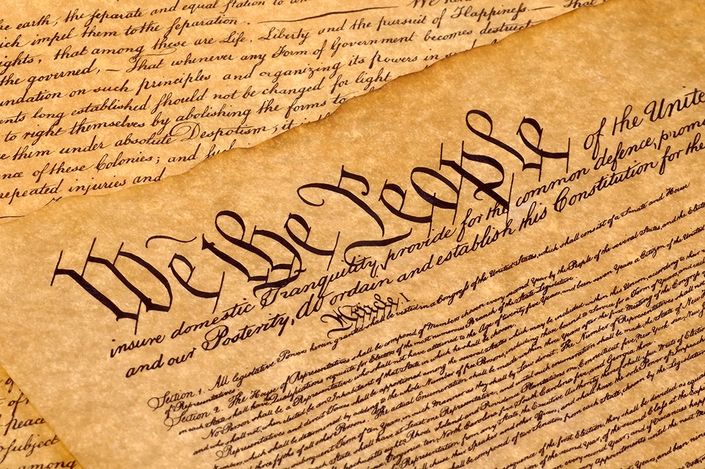
Introduction To Criminal Law
Introduction To Criminal Law
Each day officers must make decisions as they relate to their understanding of the law. Citizens have a right and expectation that their police department is current on the law and it's application.
Constitutional law is based upon court rulings emanating from the United States Supreme Court down through the lower courts to local law enforcement agencies. It is a law of procedures and these procedures control our actions. Statutory law is based upon laws passed by the state legislature. This black letter law is the criminal code. The criminal code is enforced by officers. As a result, police officers, deputy sheriffs, commissioned officers in general, is an enforcer of the law. How strict you enforce the law and your ability to interpret the law (based upon continuous study of all laws) is considered to be a community oriented police officer. In other words, you may not arrest a person at times because you have knowledge that a warning or other action would be better. Officers have a great deal of power in that decision-making process. Wisdom is learned and comes through a series of right decisions and more importantly, wrong decisions. The ability to know when to make the right decisions falls into the constitutional rights that you hold and have upon others.
Your Instructor

K. L. Williams
klw4839@gmail.com.
_____________________________________________________________________________________
Personal Statement
I am a highly motivated, responsible and hardworking administrator with over thirty years’ experience in law enforcement, security, safety and emergency management at the senior level. For over twenty years I have trained law enforcement officers on the local, state, and federal levels. Primarily much of this training focused on classes in criminal justice, emergency management, and crowd control.
As director of the Institute of Justice & Accountability my emphasis there has been on improving the relationship between law enforcement and the community through officer training and community town hall facilitation. www.instituteofja.com
Education
PH. D - Sociology
MBA - Masters of Business Management
Bachelor of Science - Criminal Justice
Diploma - Massage Therapy
Skills
POST certified law enforcement officer state of Missouri
POST certified trainer in Biased Policing / Racial Profiling & Defensive Tactics
State of Missouri Department of Public Safety Generalist Instructor
Federal Bureau of Investigation Instructor Development Certification
Instructor in Counter Terrorism & Weapons of Mass Destruction SEMA
Certified in Incident Command / FEMA
Law Enforcement Field Training Officer Instructor Certification
The Verbal Judo Instructor Certification
DDI Instructor Certification
DQE Decontamination Instructor
Cooper Aerobic Institute Physical Fitness Coordinator
Fit Force Peace Officer Fitness Coordinator
Federal Bureau of Investigation Certified Defensive Tactics Instructor
Advanced Taser Instructor Certification
Phase Four O.C. Regional Certification
Instructor in Use of force/ SLMPD
Second Degree Black Belt in Aikijitsu
Awards
POST Law Enforcement Instructor of the Year – Mo 2001
NAACP Arizona Man of the Year - 2002
